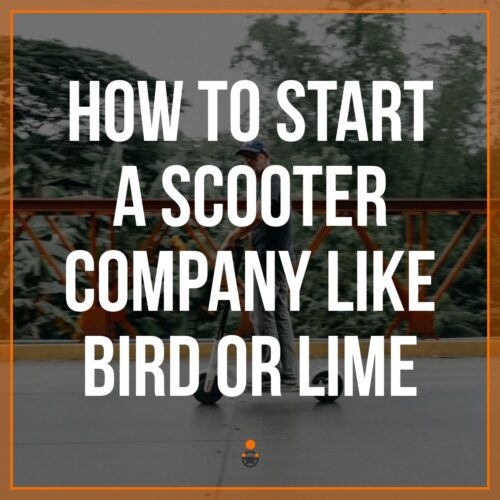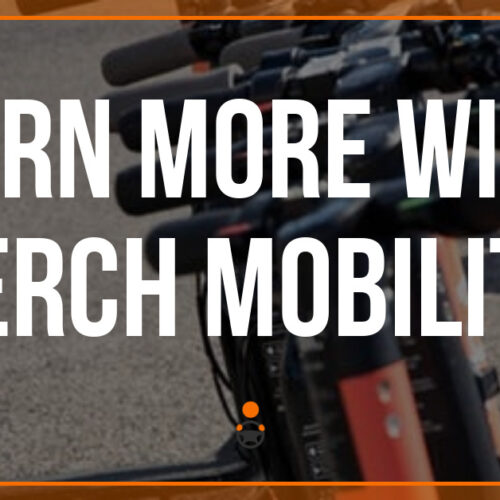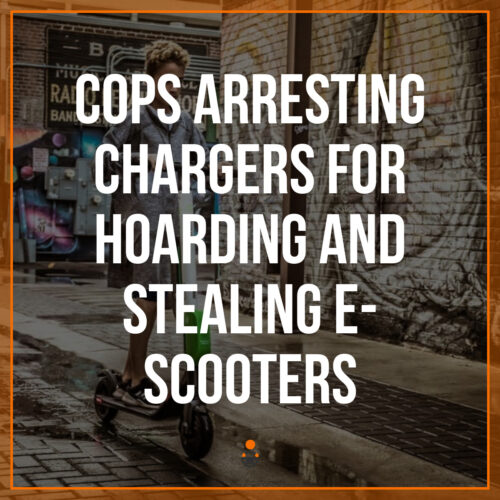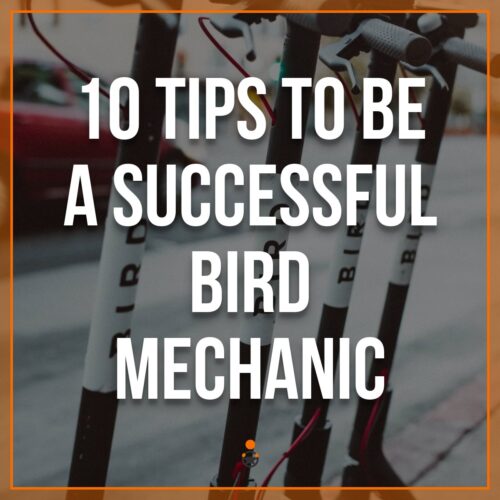Announcement: Interested in learning from one of the top Bird Fleet Managers in LA? Perch Mobility is hosting a free breakfast for Bird chargers at Curbivore 2022. Includes hands-on demo with Bird Fleet Manager, Adan, on how to charge more efficiently with Perch. RSVP for free tix at https://d.pr/xJVVXi
COVID has had a big impact on a lot of businesses in the transportation space and recently, Bird announced that they’ve transitioned away from gig workers, or chargers, towards a new model called the Fleet Manager Program.
I was one of the first chargers for Bird back in 2018 and although I’m sad to see the program go, it seems like most of the scooter industry is trending away from using gig workers.
And of course, given the economic impact (not to mention the physical and psychological ones) that the pandemic has had on millions of working families around the world, this seems like a particularly interesting and socially distanced opportunity. So let’s take a first look at the program and see if it’s something worth considering.
What are Fleet Managers?
From my research, fleet managers are basically local small businesses or entrepreneurs who contract with Bird to manage and operate a fleet of e-scooters in their city.
The fleet managers use an app-based system that lets them collect, charge and redeploy the vehicles, similar to Bird Chargers, as well as service and repair everyday wear and tear.
So in essence, you are really operating a mini-fleet of scooters and can choose where to pick up and distribute vehicles in your market – but you do need to follow the local regulations. Meanwhile, according to Bird’s website, they provide the knowledge, analytics and data to help fleet managers maximize their revenue.
In the early days of escooter sharing, gig chargers had to compete to find vehicles. Now, the Fleet Managers are responsible for specific vehicles (usually around 50-100) to track, monitor, charge, and repair. So there’s a lot more involved but I think it solves some of the early issues with the Charger program.
Related article: how to start an electric scooter rental business
Do Fleet Managers Own Their Scooters?
Short answer: no. Bird continues to own all of the vehicles, which might not sound like a great deal on the surface but it means there’s a much lower barrier to entry since you don’t have to buy all the scooters. Fleet managers can return the vehicles they manage at any time without penalties or fees.
While fleet managers do not own the scooters, Bird has set a simple but strong incentive for them to maintain the vehicles in excellent condition for a long period of time.
Fees and penalties only come into play if or when a vehicle is damaged, lost or stolen. If a fleet manager tries the program, manages a fleet of 50 escooters, a month later decides the program is not for them, and returns the vehicles in the condition they received them, they owe nothing to Bird. It looks like the program was originally piloted in March and with the updated terms, fleet managers only owe money out of pocket to Bird for stolen, damaged or “churned” vehicles.
How Much Do Fleet Managers Make?
As is typical in any new industry, the answer to this question is really ‘it depends’. It depends on when and where you’re operating (i.e. some markets will obviously be better/in higher demand than others) AND how good you are at being a fleet manager. One of the things I love about these kinds of opportunities is that better chargers/workers and in this case, fleet managers can make more than the average if they know what they’re doing.
So this is where things obviously get interesting. At the start, fleet managers will take home around 35%-40% of ride revenue generated from their scooters but can quickly see an uptick to as much as 66% of ride revenue. City fees, sales taxes and other expenses make up the remainder that goes to Bird.
The percentage that the fleet manager gets to keep may not seem like a lot at first but the idea here appears to be to go for scale since the revenue generated from every ride can add up quickly. A good comparison is the typical Uber or Lyft driver who keeps 60-70% of each fare but they only get paid when they’re physically out there working.
As a fleet manager, your scooters are out there earning money while you’re at home on your butt. Some fleet managers that I talked to in San Diego and Indianapolis report taking home from $1,500 all the way up to $5,000 every week. There are really a lot of factors here that go into how much you’ll make, but the important thing in my mind is to set realistic goals and expectations.
According to Bird “the median annualized take-home amount for Fleet Managers in the US is currently more than $70,000.” That’s a respectable if not high annual income at a time when the national unemployment rate is still well above 8%.
This program is not for everyone, since you’re literally now running a business and responsible for a lot more than charging. But the compensation reflects that and it’s easy to see how this operational model could scale. The more rides a Bird receives, the more quickly a fleet manager’s revenue will increase as will Bird’s.
Fleet managers will also have access to tools and analytics provided by Bird. So for example, if a mini fleet of escooters is organically generating 2 riders per day in a city, fleet managers can access analytics and other tools for deployment guidance and increase their rides per day.
What Do Cities Think about the Fleet Manager Program?
This model should be interesting to cities since fleet managers will be locals who are watching their vehicles very closely. Bird of course requires that Fleet Managers comply with local regulations and they have added guardrails into the Bird app. For example, Fleet Managers can’t drop Birds into areas that already have too many vehicles when it violates city regulations.
Related article: how to start an electric scooter rental business
Are There Risks to Being a Fleet Manager?
Of course. For starters, we know that operating e-scooters is a pretty seasonal business. A fleet manager in Florida will have many more days out of the year to collect on rides than one in, say, Minnesota. Theft and vandalism also remain persistent concerns for micromobility operators globally, and cities often have strict regulations on where you can and cannot deploy and ride escooters.
Ultimately, a fleet manager’s success is aligned with Bird’s investment in the program and the company’s close communication with the city.
How to Sign Up to Become a Fleet Manager
Bird has created a Fleet Manager page with more information on the program, as well as a series of video testimonials and a sign up form. Potential partners are asked to share their name, email address, location, planned launch city and personal vehicle type, number of days they are available to operate their fleet per week and number of vehicles they believe they are capable of operating (from 10-200+).
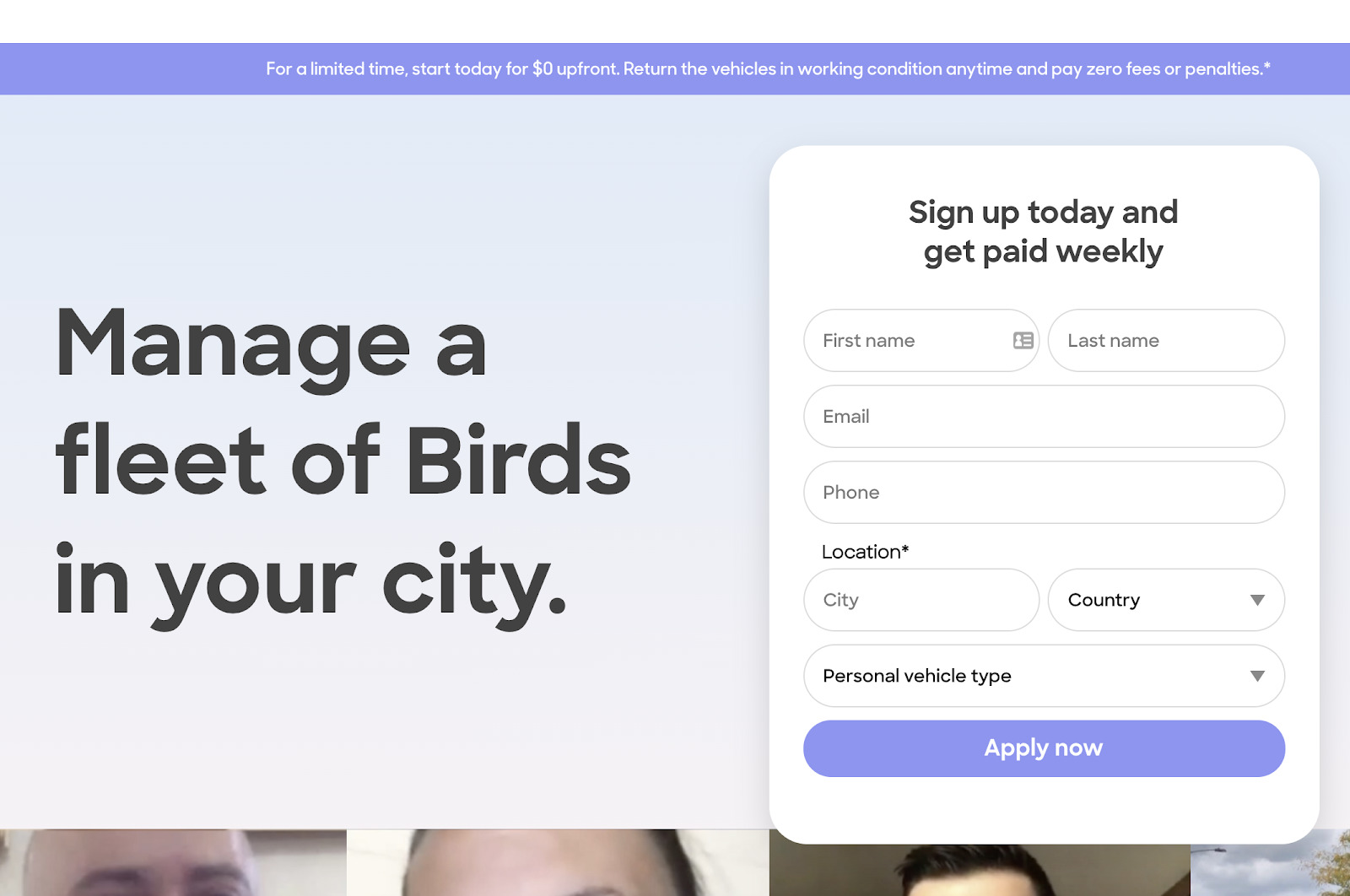
My Tips for Success
If you have experience charging scooters for Bird, I think you’ll have an immediate leg up on the competition. And I think warm-weather markets are also where there’s the least risk.
As micromobility continues to rise in popularity during the pandemic, I’m bullish on the future of micromobility since there aren’t many active modes of transportation safer than an escooter where you’re outdoors, riding alone and can wear gloves to protect your hands.
3 Quick Tips for Success:
- To get started, you’ll want to make sure you have a viable way to transport the escooters, and the bigger the better.
- Make sure you understand how the Bird app works from the consumer side – ie take a ride or two!
- Connect with other fleet managers on Facebook, Reddit or Social Media. Especially at the start of new programs like this, you can learn a ton from others who are all trying to figure it out.
Are you a fleet manager or considering becoming one? If so, I’d love to hear from you as the program evolves. And if you’re interested in joining our Fleet Manager Facebook group, please click here.
-Harry @ RSG
Related article: how to start an electric scooter rental business
